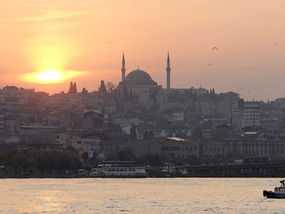Saturday, 13, Dec 2008 12:01
On this day in 1918, women voted in a British general election for the first time.
Ninety years later and things still aren’t rosy. Until 20 years ago women never made up more than five per cent of MPs in parliament. Now they’re 20 per cent. It’s an improvement, but it’s not exactly half-and-half.
The UK has fewer female MPs than Cambodia. It comes 15th for representation in national parliaments compared to the other 27 EU member states. In a country that’s otherwise so progressive, why do we still have so few women MPs?
“It’s not harder for women,” says Jo Swinson, Liberal Democrat equality spokesperson. “It’s just harder for carers.”
“The division of family duties in society is still very unequal. This is what we find all the time. Women get involved in politics in their twenties and then in their thirties they say ‘I’ll take time out’. But men don’t take that time out.”
Ann Cryer, the Labour MP who dedicated herself to a campaign against forced marriage, agrees. “By its nature it’s difficult, because parliament is usually two or four hundred miles from where people live. That’s a problem for women with young children. It’s also a problem for men with young children but I think women have a stronger emotional attachment to their children than men have. That’s not to deride men, but you’re not going to get rid of that emotional attachment just like that.”
You can see the truth of that by the culture of parliament as well as its composition. The old adage was that it had a shooting range, but no creche. No-one seems to know if that shooting range is still there, but there’s certainly no creche. Even today, the atmosphere in the House, and to a lesser extent in the halls and corridors of Westminster, retain an unmistakably male character.
Swinson cites the response to Nick Clegg’s performance during this week’s prime minister’s questions as an example. Clegg got up to ask about a single mother who came to his surgery as an example of lower-income groups facing criminal penalties for being unable to pay back money given to them mistakenly in tax credits. He probably wasn’t thinking about the interview he gave to Piers Morgan nearly a year ago in which he admitted sleeping with about 30 women. MPs were. He only managed to say: “This week a single mother came to my surgery in Sheffield…” before someone on the other benches shouted: “Thirty-one”. MPs laughed for a good long time.
“I was appalled they started laughing and applauding,” says Swinson. “I know he made those ill-judged comments a year ago, but you hear the phrase single mother and the first thing you think is sex? And then I thought – if this room wasn’t 80 per cent male would it be the same reaction? It was puerile. And puerile comes from the Latin word for ‘boy’.”
Some observers also find something a little masculine about the way parliament is set out. Call it over-analysing, but there are a few people who think that represents a masculine way of doing things; a politics based on conflict rather than consensus.
“I think it’s significant,” says Katherine Rike, director of women’s rights group The Fawcett Society. “Most new administrations [such as Scotland or Wales] have chosen not to construct their parliament in that way – they’re circular. We’re trying to fit women into an institutional design which is very masculine and there are limits to how much can change within that complex.”
“It’s adversarial,” Cryers agrees. “And I think it’s more difficult for women to cope with that adversarial nature. It took me a year or two to feel sufficiently confident to stand up and speak without notes and just talk. I did find it hard at first because I’m a naturally quiet person and when you’re speaking in the Commons people will just shout at you.”
It’s tempting to draw a conclusion about the link between our old building and our shoddy ranking in the international league table of women’s representation, but things are rarely that simple. Whatever the reasons, women are still facing a mountain when they decide to go into politics.
“I’ve been on the Council of Europe where you sit down in a semi-circle with a proper desk and water and a microphone. It’s a more civilised way of doing things,” Cryer says.
“But I’m not going to knock our parliament. It’s the best job in the world. I hope women will still feel they have a place in it. It’s so important women feel they can get in there.
“My grandmother worked with the Suffragettes. She gave a great chunk of her life up for that and I think what she did is just now coming to fruition. So whoever’s reading this please do try for parliament. Don’t lose sight of it. It’s important.”
Ian Dunt
Source: www.politics.co.uk, 13 Dec 2008






